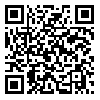BibTeX | RIS | EndNote | Medlars | ProCite | Reference Manager | RefWorks
Send citation to:
URL: http://rjms.iums.ac.ir/article-1-3788-en.html
2- Iran University of Medical Sciences, Tehran, Iran
3- Tehran University of Medical Sciences, Tehran, Iran ,
Background:
Hypertension increases the risk of macrovascular complications and is one of
the most important and common problems among patients with diabetes. This study
aimed at assessing the impacts of blended educational intervention program on
decreasing blood pressure and HbA1c among patients with type 2 diabetes and hypertension.
Methods: Two hundred
patients with type 2 diabetes and hypertension were randomized in an
educational intervention study in two groups in 2013-2014. The intervention
group attended in a six sixty minutes educational sessions including lecturing,
group discussion educational film for intervention group, in addition to the
regular care presented for both groups. To collect information about
demographic characteristics, diabetes related variables, a self-designed
questionnaire was used. Data were analyzed using X2, independent t-
test and paired t test through SPSS v. 16. A p value of less than 0.05 was
considered as statistically significant.
Results: Blood pressure and HbA1c had no
significant relation in both groups (p>0.05). Paired t- test revealed blood
pressure (p<0.001) and HbA1c (p<0.001) before and after educational
program had significant relation in intervention group. Also, after a six-month
educational program, blood pressure (p=0.54) and HbA1c (p=0.83) had not
significant association in control group.
Conclusion: It seems that educational program can be effective
on decreasing high blood pressure among type 2 diabetic patients. Therefore,
implementation of educational program in diabetes clinic is suggested.





